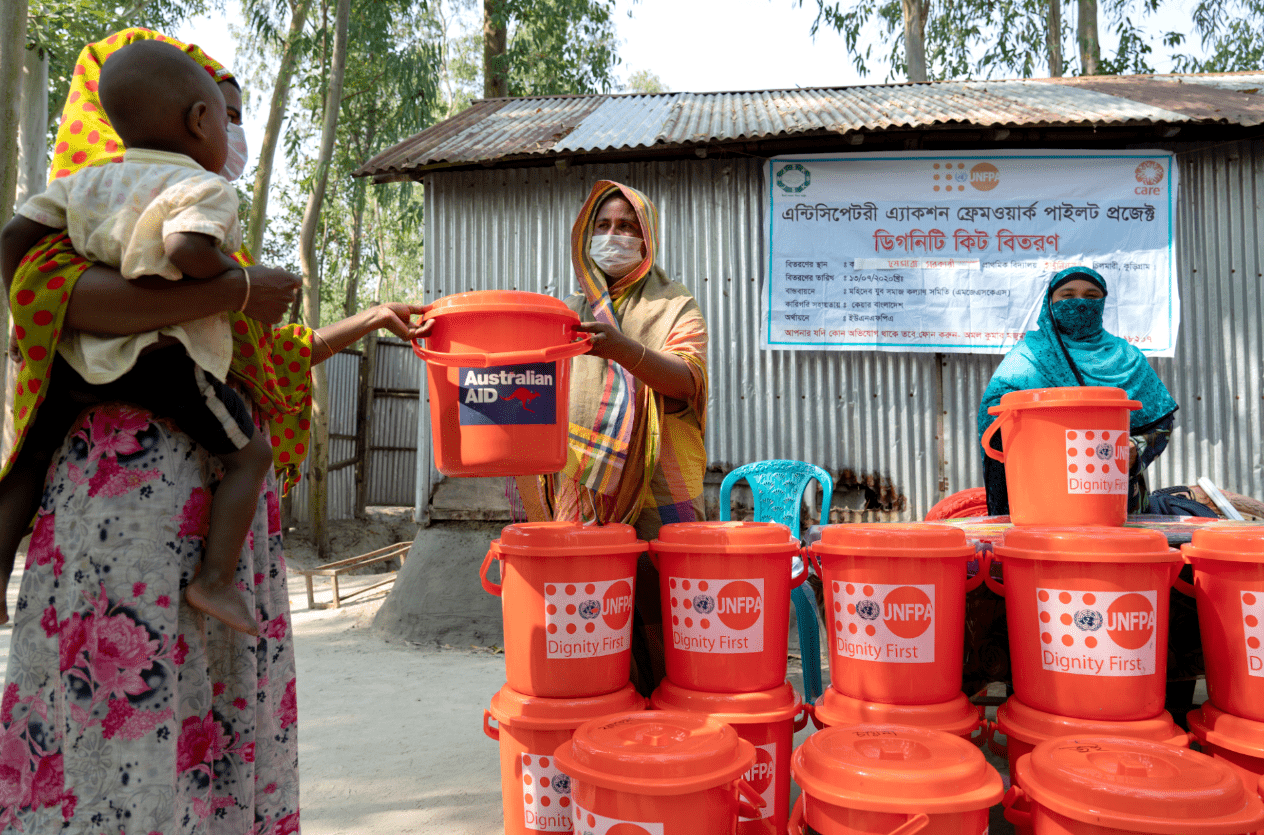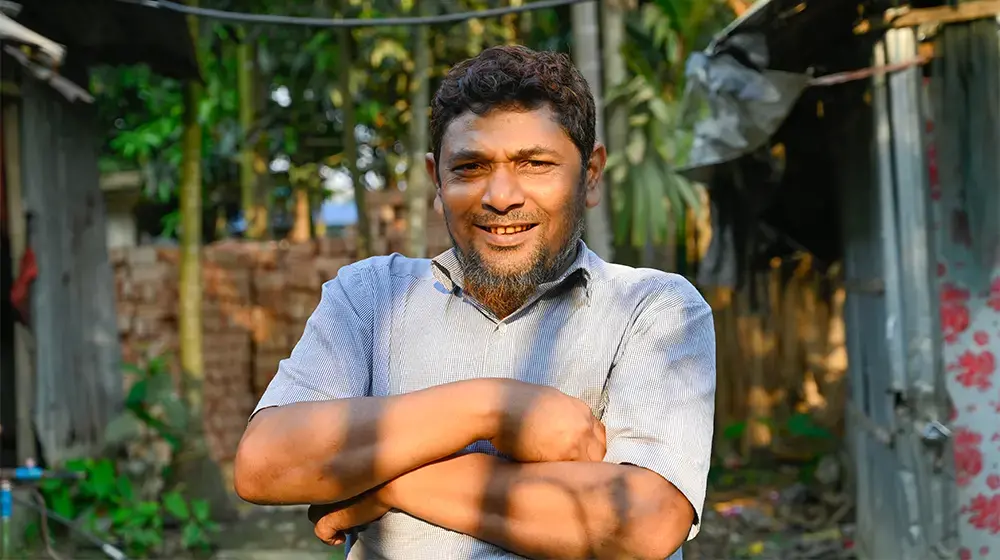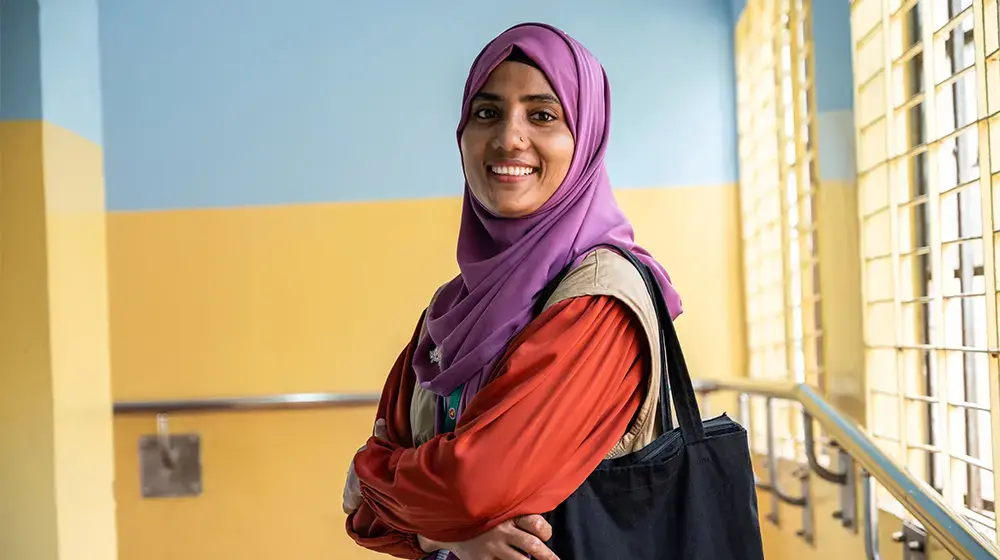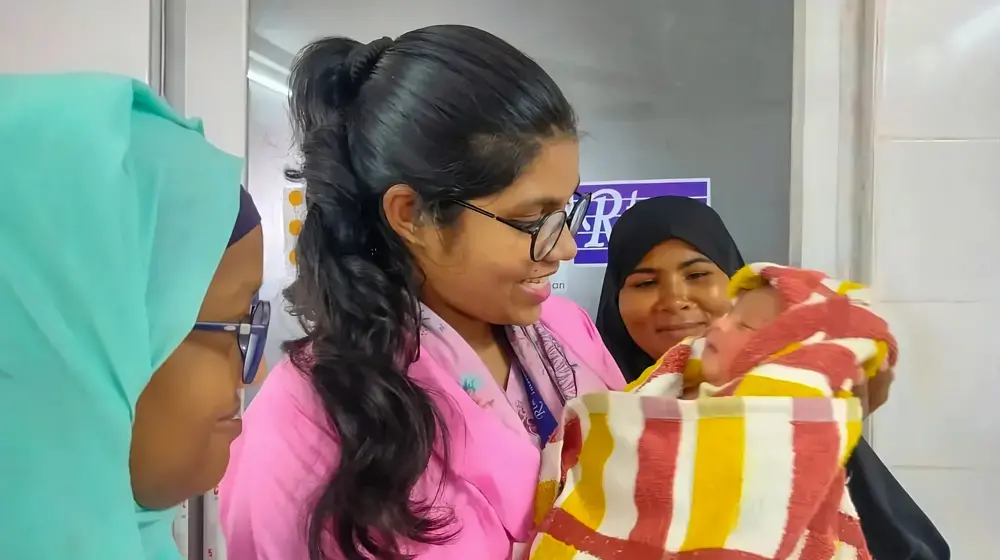No matter where natural disasters occur, they foremostly affect the most vulnerable. Floods in Bangladesh are no exception. Each year when the monsoon season begins, its effect is evident on people’s inundated houses, drowned livestock and damaged infrastructure. However, some of its damage is often not visible at first glance. The less evident victims of the disaster are usually women and girls, who in its aftermath are threatened by lack of security, limited access to menstrual hygiene products and other vulnerabilities.
On 4 July 2020, when a high probability of severe flooding was forecasted along the Jamuna River in Bangladesh, UNFPA and its partner agencies adopted a new approach to disaster relief through the “Anticipatory Action Pilot” project. Instead of responding to the crisis after the destruction, the project, funded by UN’s Central Emergency Response Fund (CERF) and by Australia Aid (AusAID), provided aid to women and girls in the Kurigram, Gaibandha and Jamalpur districts before the floods occurred. This approach aimed to make the relief efforts more dignified and proactive for the women and girls in the affected communities.
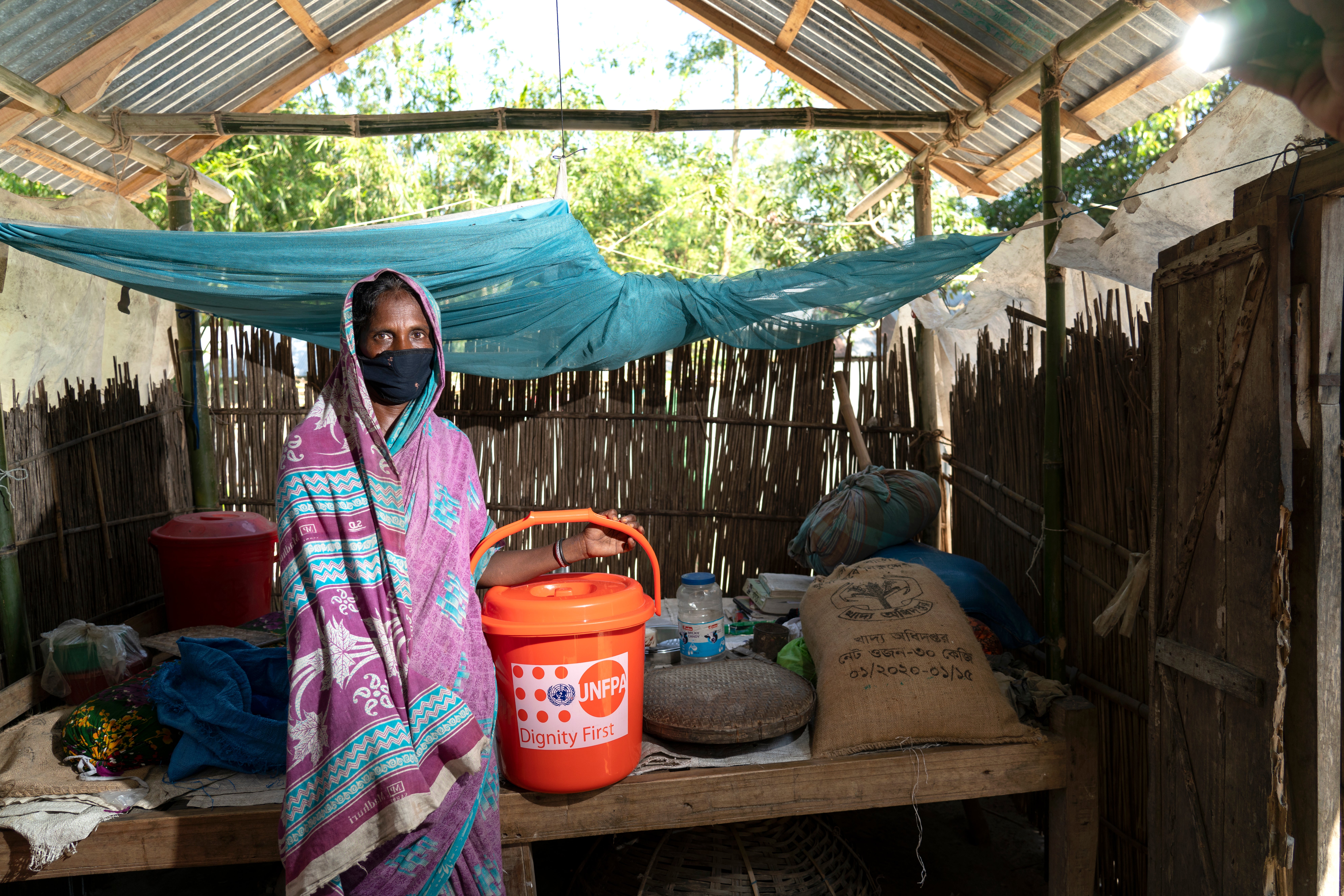
The initiative set out to aid more than 10,000 women and girls. Almost 6,000 women and adolescent girls received Dignity Kits, which enabled them to respond to the challenges caused by the temporary relocation to settlements. These challenges include lesser privacy, lack of access to clean water, lockable latrines and bathing amenities. The products contained in the Dignity Kits helped the women and girls to take care of their personal hygiene and protect themselves from gender-based violence in the challenging conditions of the settlements.
Special attention was also focused on ensuring that the relief provided by the initiative reached the most vulnerable groups, such as women and girls with disabilities and the transgender community. In the past the needs of trangender people had not been specifically looked into.
“Before, I never had access to regular relief distribution spots. I never even felt welcome in medical facilities,” Ali*, a transgender person from Kurigram district, told us after receiving their Dignity Kit.
In addition to the Dignity Kits, the implementing partners of UNFPA, ESDO and Plan International, distributed 4,500 Menstrual Hygiene Management kits to adolescent girls between the ages of 10 and 18 in the targeted districts. During emergencies, the issue of menstrual hygiene is especially critical among girls with disabilities and girls from economically vulnerable households.
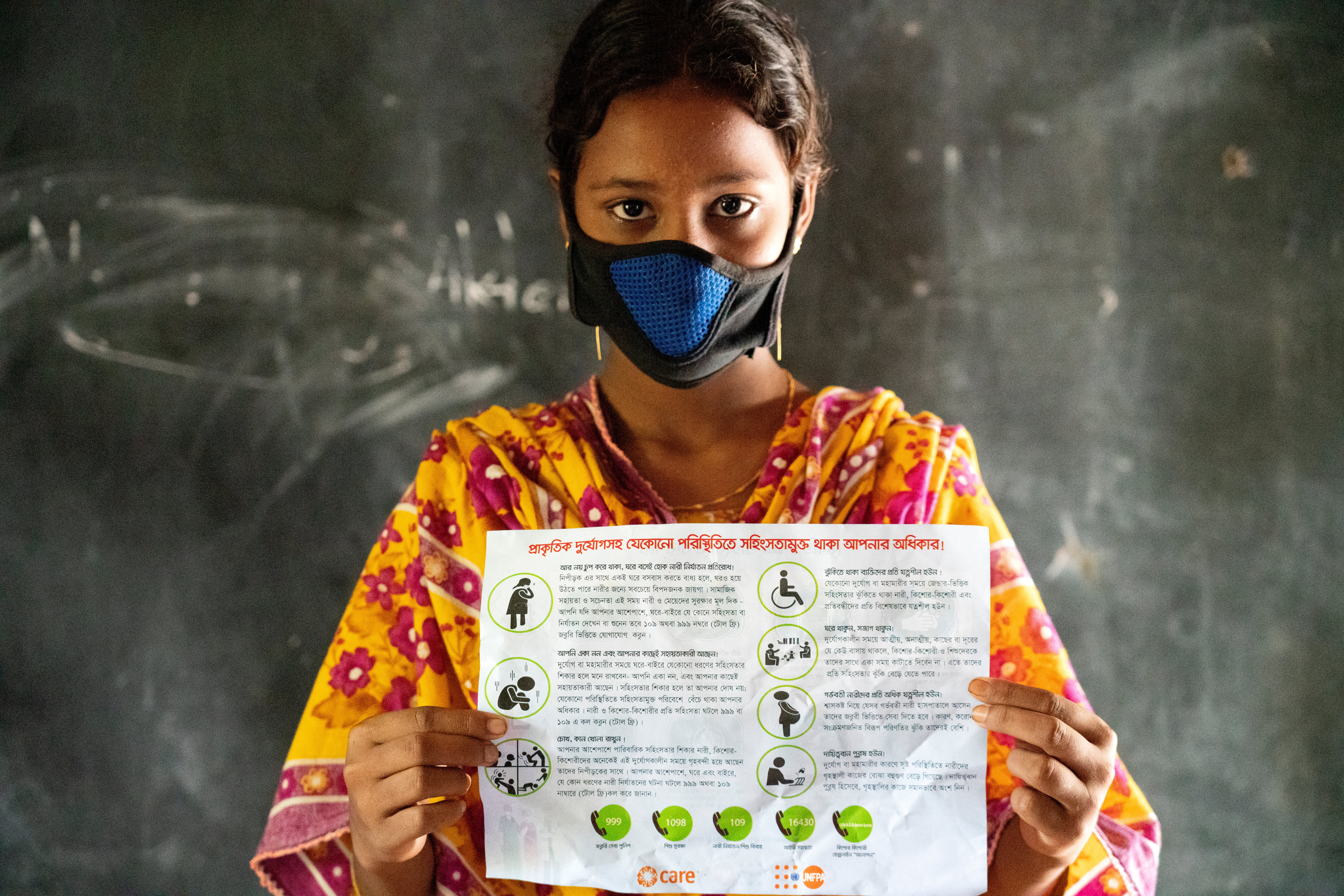
The kits also contained flash cards which gave the beneficiairies instructions on how to operate in case of different emergencies
Manuva*, a 15-year-old girl, had to spend almost a month on an embankment as her household was completely inundated by the flood. She faced numerous issues, from living without a roof to being unable to bathe or change her clothes. She even had to drop out of school when she had her period. The Menstrual Hygiene Management Kits helped Manuva to take care of her needs during the floods and provided great relief to the problems she was facing.
Through the project, UNFPA also ensured that the sexual and reproductive health and rights of women and girls were upholded, despite the flood. To ensure safe births would continue to take place, UNFPA distributed three types of Reproductive Health Kits to three Upazila Health Complexes in each targeted district. 600 pregnant women, who were likely to give birth at home due to restricted mobility, received Individual Clean Delivery Kits meant to enable a safer delivery outside medical facilities. In addition, 15 midwives were provided with Clinical Delivery Kits that reached more than 3,700 mothers and their children during July-October, 2020. And each district hospital also received a Post-Rape Treatment kit to ensure quality medical care was available to survivors of sexual violence.
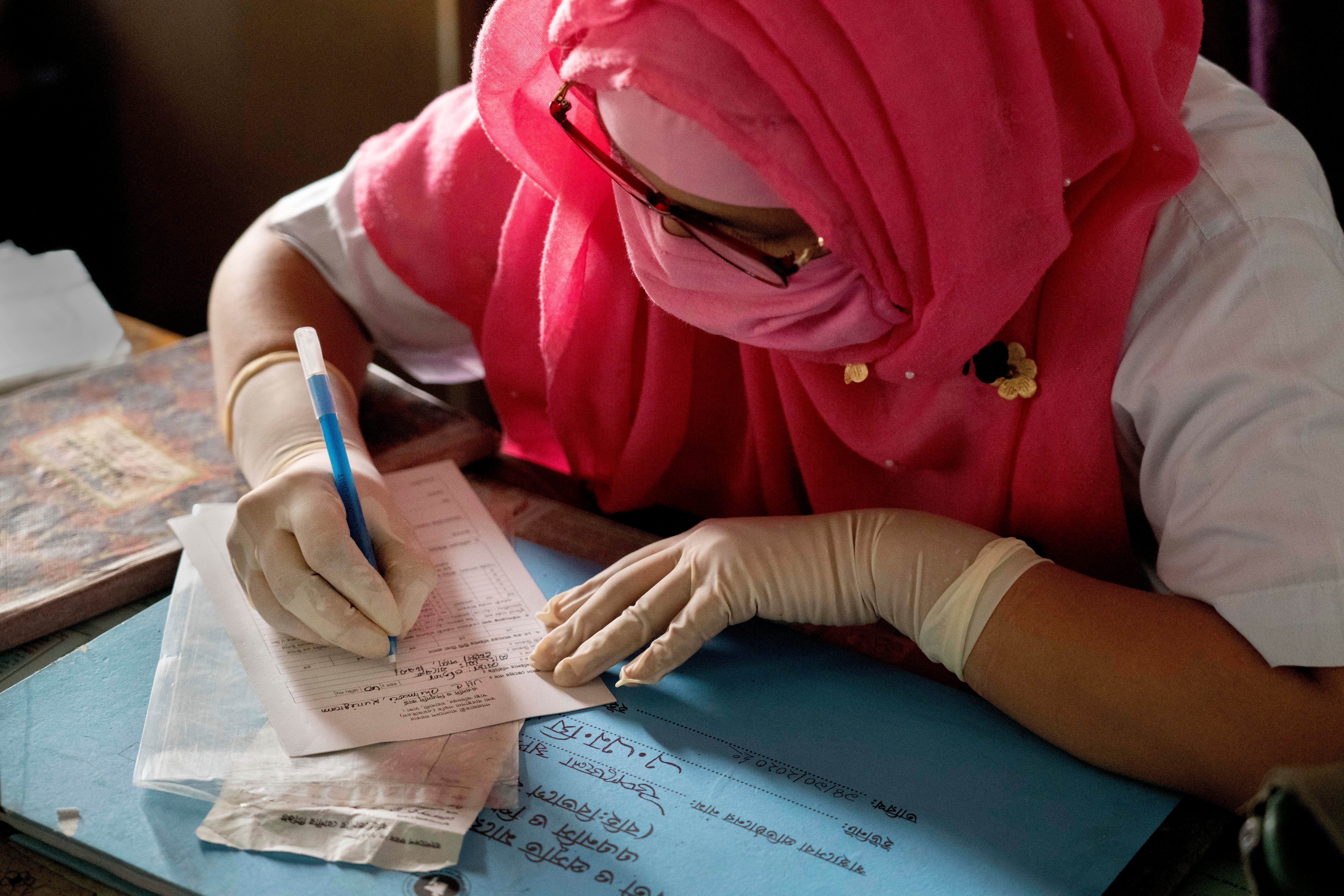
“Our serving requires managing risk, resilience to cope with stressors, and innovation to overcome new challenges. This initiative shows how our learnings from the past can be used to produce solutions for the future, solving a series of complex challenges with relatively simple innovations. Knowing predictably that disaster may appear, from our experience, and preparing before it happens, we can ensure uninterrupted dignity for women and girls and transgender community at all times", says Dr. Asa Torkelsson, UNFPA Representative in Bangladesh.
The “Anticipatory Action Pilot” project resulted in undeniable improvements in the lives of over 10,000 women and young girls in Bangladesh, and its changemaking potential can only be greater when incorporated in future life-saving initiatives. The project was implemented with the invaluable assistance of UNFPA’s partners - Plan International Bangladesh, Action Aid, CARE, and Lamb Hospital.
* All names have been changed to protect the privacy of individuals.

